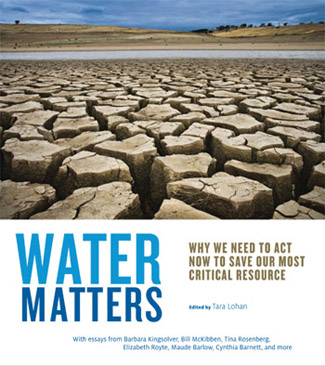Professor Charles Myrick speaks on the economics of water use

Water is an essential resource that many people in developed countries take for granted, said Professor Charles Myrick, who teaches business and economics. Myrick spoke on “Economics and Your Water Footprint” on campus April 12.
Developed countries have worked hard to establish a clean flowing water supply, Myrick said. But governments still do harm to natural water supplies around the planet.
Water is not only a necessity for humans, but it’s an important part to everyday biology, from the ocean to the forests.
“Recognize the value of water,” Myrick said.
Myrick was a guest speaker for the OCCC Reads program, that’s sponsored through the library. The program was hosted by librarians Rachel Butler and Tricia Sweany.
“Instead of treating water as a private good, use it as a public good,” Myrick said.
An example of water being used for private business is Dasani bottled water, owned by Coca-Cola. It was a $1.02-billion-dollar business in 2015, according to Statista.com
Myrick said it’s hard to think that water, the planet’s biological lifeline, could make such a profit.
Myrick said he was born in Poplarville, Mississippi, near the Mississippi Delta, where a “dead” zone is twice the size of Delaware. A dead zone is a swath of area in the world’s oceans that has had its oxygen levels depleted.
Known as hypoxia, these dead zones are usually found near coastlines where fertilizer water seeps into oceans, according to the video on the Gulf of Mexico dead zone shown during the speech.
“This not only harms the marine environment, but also the fishing economy of the Gulf,” Myrick said.
This hypoxia won’t stay near the coastal U.S.
“Eventually (it will) spread” throughout the Gulf, Myrick said.
Myrick not only warned of the hypoxic conditions of the Gulf Coast, but also sounded the alarm on poorly built dams, and the chaos that can ensue.
“Governments can hurt (a habitat), especially with dams,” Myrick said.
Dams back up river bodies to create hydroelectricity and irrigation control.
The harm that Myrick focused on is when a government builds a dam cheaply, due to various economic factors.
If a dam breaks, many don’t realize the very real threat that a backed-up river poses to habitats downstream.
The OCCC Reads program has hosted several speeches and workshops to promote this year’s book, “Water Matters: Why We Need to Act Now to Save Our Most Critical Resource.”
Free copies are available in the library.
Myrick can be reached at his email cmyrick@occc.edu or by phone at 405-682-1611 ext. 7550.